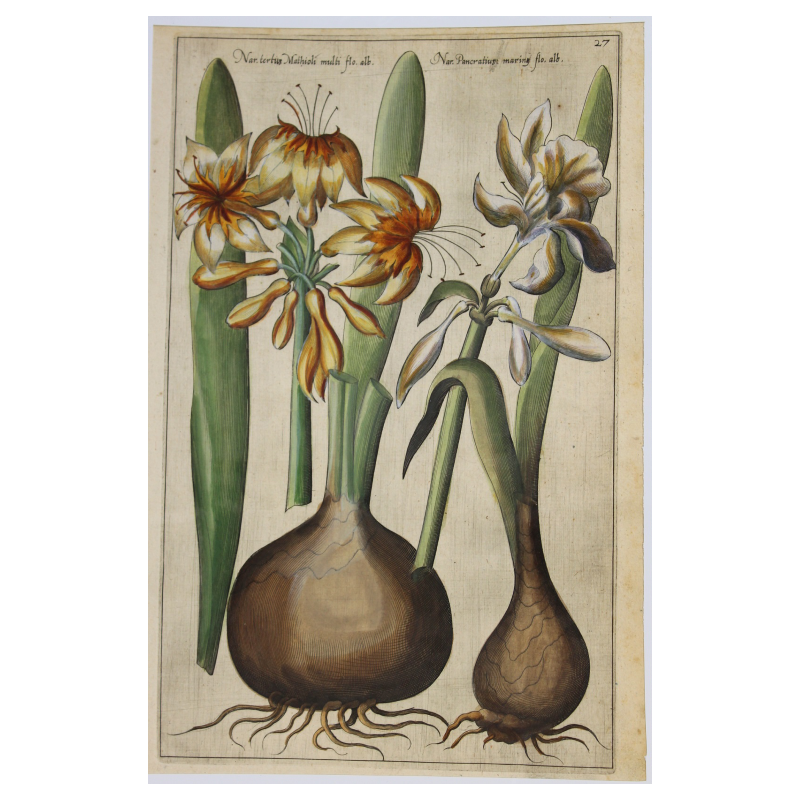- Article is no longer available





Nar. tertus
Nar. Pancratius
Original 17th copper engraving, drawn and engraved by Sweert (1552-1612), colored at the time.
Part of the book: Florilegium, various florib tractans. and aliis Indicis plantis ad vivum delineatum in duabus partib. and quartu linguis concinnatum.
Pure tissue paper, IN FOLIO 40 X 26.5 cm
SWEERT Emmanuel:
Florilegium, various florib tractans. and aliis Indicis plantis ad vivum delineatum in duabus partib. and quartu linguis concinnatum.
Frankfurt-Main: A. Kempner. Francofurti, Anthonium Kempner, 1612. 2 parts in one volume, folio (400 x 265 mm), First part with engraved title, typographic title for part 2, engraved portrait of the author, 110 engraved plates, contemporary vein. Great copy. *** THE FIRST EDITION OF THE "FLORILEGIUM" CELEBRATED BY SWEERT *** Initially designed as catalogs for the sale of plants and bulbs at the famous annual fair in Frankfurt, Sweert's Florilegium has proved extremely popular and has been extremely popular. reprinted in Frankfurt in 1614 and then in Amsterdam in 1620, 1631, 1647 and 1655. Sweert's reputation as a florist was widespread: he was at one time the prefect of the gardens of Emperor Rudolf II and his mention occurs in the correspondence of the naturalists, botanists and florists of the period. A white iris has even been named for him (Iris sweertii). The work is divided into two parts: the first deals with bulbous species, and the second on species with "fibrous" roots (hellébores, canna, muguet, chysthanthemums, and many others) and a number of "beautiful" and "scented trees such as myrtle, bacon and juniper. Hunt (Botanical Books), 196; Nissen (BBI) 1920; Pritzel 9073
